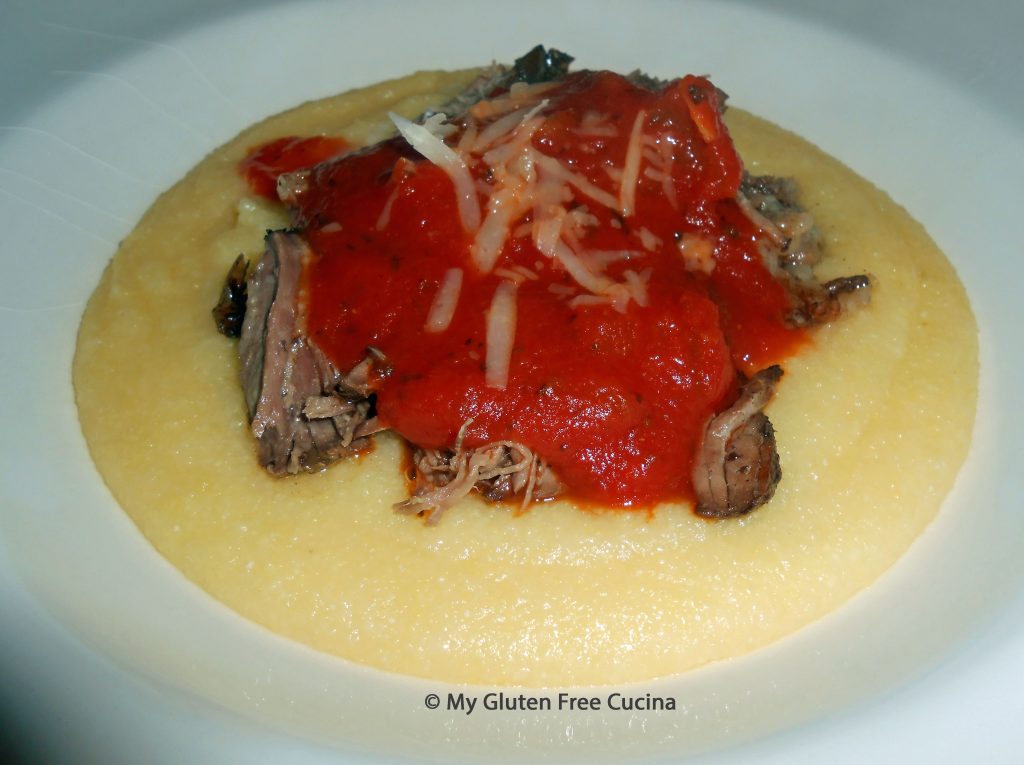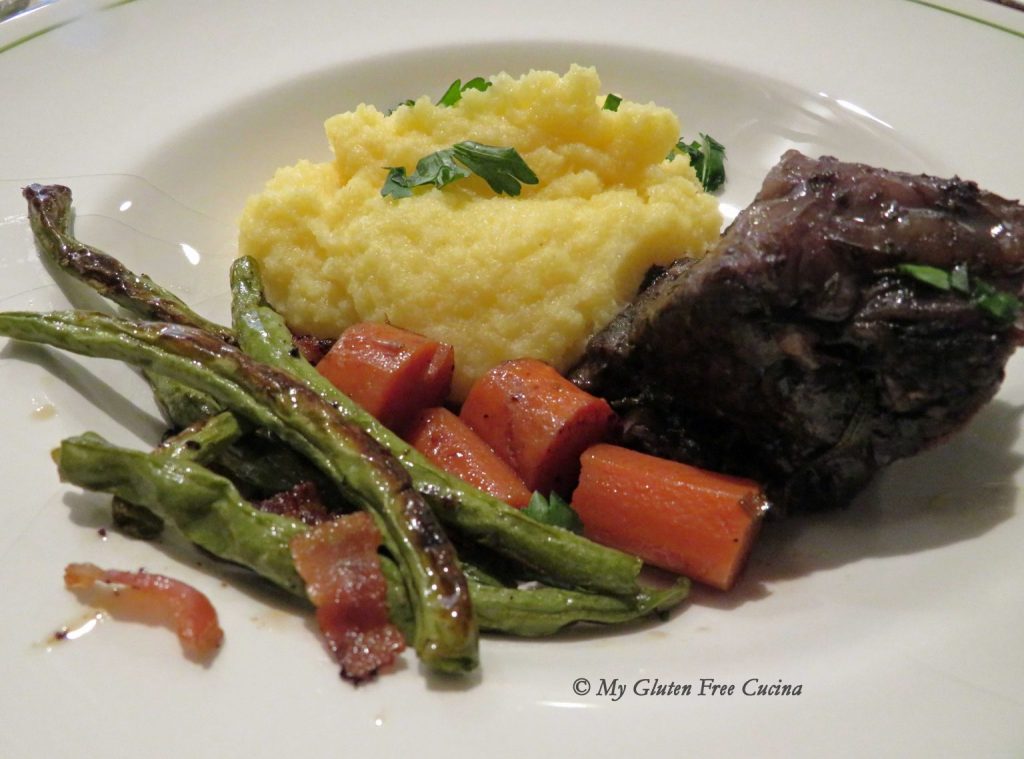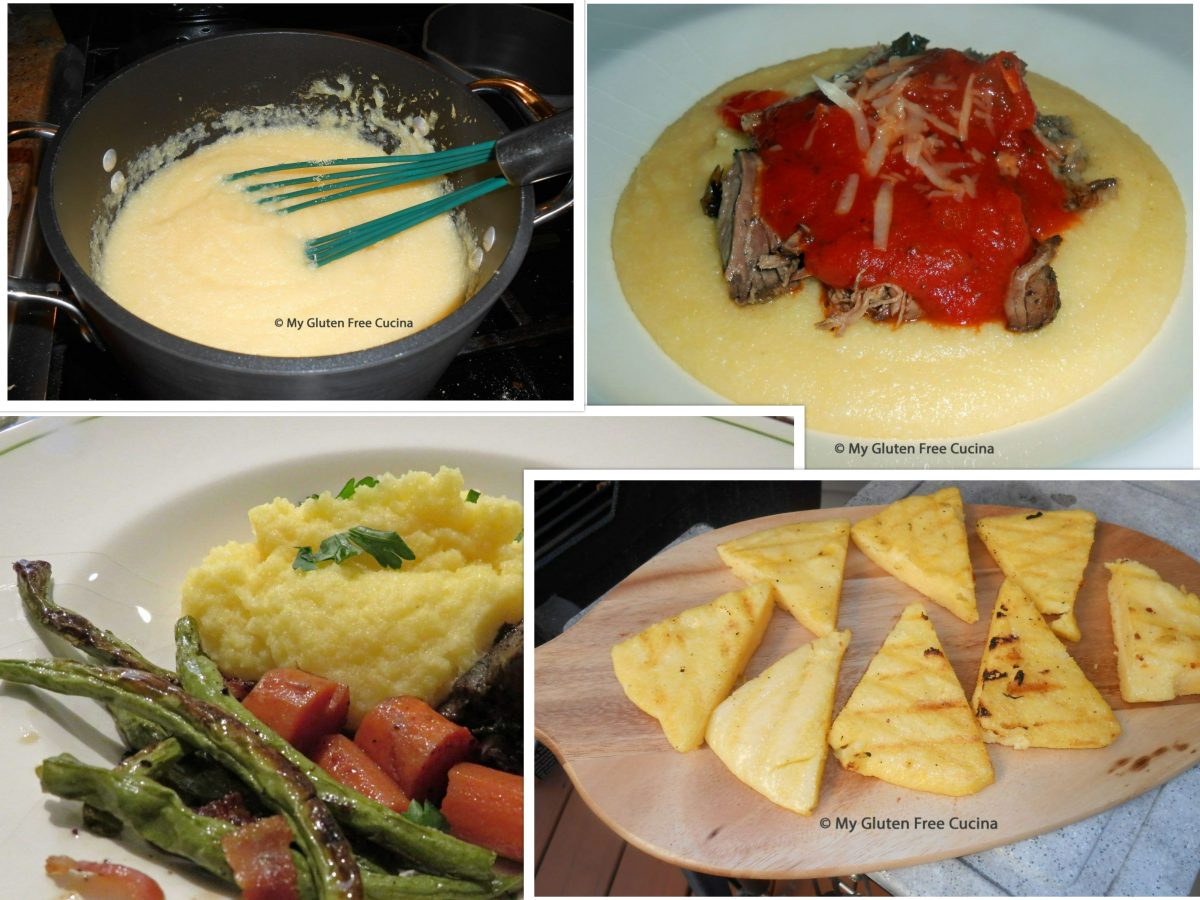If you are gluten free like me, you might be looking for a change of pace from the usual potato and rice sides. Enter Polenta! Today I’ll teach you how to prepare this humble porridge and offer a few ideas on how to serve it. The cooking method is very much like making risotto, and can take a full 40 minutes for regular, coarse ground corn meal. For busy nights you can also find quick cooking polenta that takes much less time. Whichever you choose, be sure the polenta is labeled gluten free. Here’s how to make it…
This post contains affiliate links.
Ingredients:
- 5 cups water, divided
- 1.5 tsp. salt
- 1 bay leaf
- 1 cup gluten free polenta
- 1 tbsp. butter
- grated Parmesan cheese, to taste
Preparation:
Heat 5 cups of water in a saucepan. In a second saucepan, combine 3 cups of the heated water, salt and bay leaf. Gradually stream in the Polenta, whisking with each addition. Bring to a simmer and cook over low heat, stirring frequently.
As the liquid becomes absorbed, add the remaining water 1 ladle at a time. Continue to stir frequently until it reaches the desired thickness, about 40 minutes for regular and 5 minutes for quick cooking polenta. At the end of the cook time, remove the bay leaf and stir in butter and Parmesan.

Yes, it’s that easy. So now that you have made a batch of Polenta, how will you serve it? You could simply enjoy it with extra Parmesan as a side dish.
Or top it with Crock-Pot braised beef for a hearty Italian dinner.

Another option, Beef Short Ribs with Polenta is a beautiful fall dish!

And finally, my personal favorite, the leftovers! Once cooked, Polenta will begin to firm up almost immediately. Before that happens, pour it into a baking dish lined with parchment paper. Cool to room temperature, cover and refrigerate. Later you can slice it into wedges and grill for about 8 minutes per side.

I hope I’ve given you a few new ideas for your gluten free dinner rotation. Try a new dish and keep your menu interesting!
Notes: ♪♫ Polenta is made from coarse corn meal. While corn itself is gluten free, cross-contact with other grains that contain gluten may occur during processing. Be sure to check ingredient labels and if polenta is not labeled gluten free don’t hesitate to contact the manufacturer.




